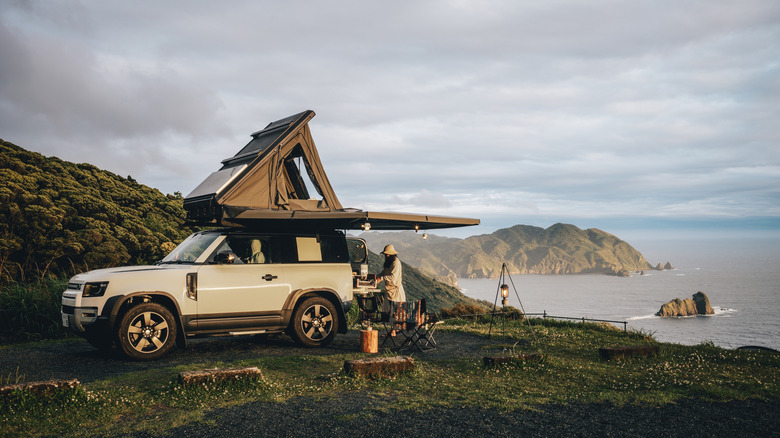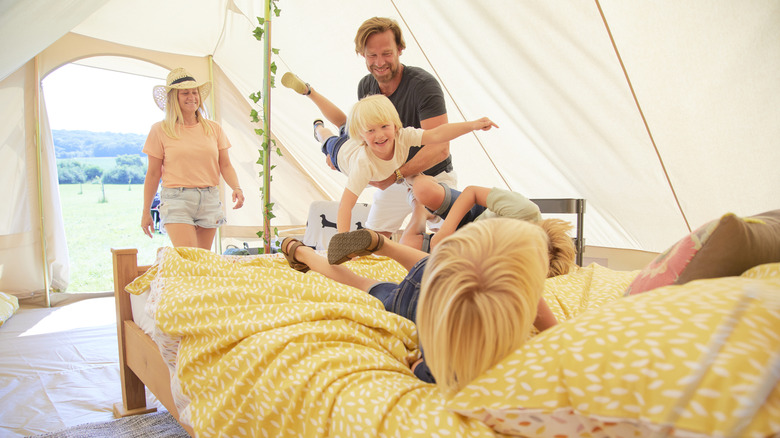Why A Rooftop Tent Might Not Be The Best Choice For Your Next Camping Adventure
We may receive a commission on purchases made from links.
With the complete list of national parks in America reaching 63 total sites, the U.S. is a camping mecca. Enjoying the outdoors is a national tradition, and enthusiasts are usually divided into ground and car campers. But rooftop tents, a technology that's been around since the late 1950s, are becoming more popular. Some people believe they offer the best of both worlds since they can be set up in a normal car but let you skip sleeping directly on the ground. They make for very alluring social media pictures, too. Despite their benefits, these tents have major drawbacks that campers should consider before buying one.
The biggest issue with rooftop tents might be that they take away your car's functionality once set up. If you're doing a multi-night trip, this means you either won't be able to use your car during the day or will have to set the tent up every night and take it down every morning. Some people don't mind this, but it can be a huge hassle. It's also annoying to climb down a ladder if you need to make a midnight bathroom trip or grab something you forgot in the car. Because rooftop tents are fairly small, they have reduced capacity, too. They also limit you to camping only in places where cars are allowed to park.
Find good alternatives to rooftop tents
All of these issues may make you question if rooftop tents are worth it. Sure, they have some pros going for them, but you can find alternatives with those same benefits. There's plenty of camping gear for a more comfortable night outdoors. If you want elevated sleeping, consider buying a camping bed (like the Aboron Oversized Camping Cot). This comfortable option will keep you dry if the bottom of your tent gets wet during a heavy downpour. It can also help you avoid dealing with loud wind — a common complaint amongst people with rooftop tents. Or you can look into buying an RV. While a significantly higher investment than a tent, it basically works as a house on wheels. Another option is to simply look for an off-the-grid glamping spot (like this resort in Florida).
Of course, the ultimate decision is up to each camper, and however you choose to camp is good as long as it works for you. Campers on the fence, however, should see if it's possible to try this camping style before they buy a tent. The best-case scenario would be borrowing one from a friend or joining someone who has one on a camping trip. If that's not doable, then buy a lower-end tent and test it out rather than going for higher-end models right from the get-go.

